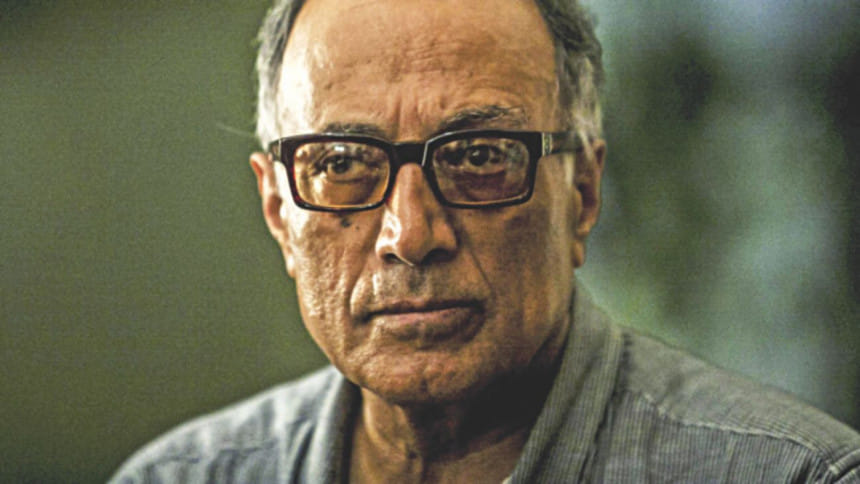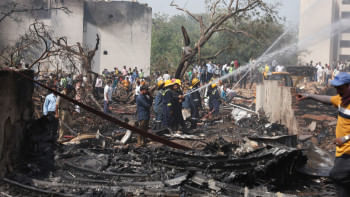Abbas Kiarostami

Abbas Kiarostami was born on June 22, 1940 in Tehran. His first artistic experience was painting, which he kept pursuing into his late teens, shortly before he left home to study at the University of Tehran School of Fine Arts, winning a painting competition at the age of 18. Being a painter, designer, and illustrator, Kiarostami worked in advertising in the 1960s, mainly designing posters and making commercials. He shot around 150 advertisements for Iranian television between 1962 and 1966. He began creating credit titles for films (including Gheysar by Masoud Kimiai) and illustrating children's books in the late 1960s. when the Iranian New Wave began with Dariush Mehrjui's film 'Gāv' in 1969, Kiarostami helped set up a filmmaking department at the Institute for Intellectual Development of Children and Young Adults (Kanun) in Tehran. Kiarostami's first film and the institute's debut production was the twelve-minute 'The Bread and Alley' (1970), a neo-realistic short film about a schoolboy's confrontation with a hostile dog. After that, the department became one of Iran's most renowned film studios.
Kiarostami's first feature film was 'Report' released in 1977. It was about the life of a tax collector accused of accepting bribes. During the 1980s, Kiarostami directed several short films, but it was not until his release of 'Where Is the Friend's Home?' that he started gaining appreciation outside Iran. Between 1995 and 1996, he was involved in the production of 'Lumière and Company', which was a collaboration with 40 other film directors.
Kiarostami has been compared to Satyajit Ray, Vittorio de Sica, Éric Rohmer, and Jacques Tati, however, his films exhibit a singular style, often using techniques of his own invention. Unlike other directors, Kiarostami showed little or no interest in staging exaggerated combat scenes or complex chase scenes in large-scale productions, instead he attempted to shape the medium of film to his own specifications. He continued experimenting with new modes of filming, using different methods and techniques of direction. Kiarostami's films contain a high degree of ambiguity, a different mixture of simplicity and complexity, and often a mix of fictional and documentary elements. The ideas of change and continuity, in addition to the themes of life and death, play a major role in Kiarostami's works. In the Koker trilogy, these themes play a vital role. Some film critics believe that the assemblage of light versus dark scenes in Kiarostami's film syntax suggests the mutual existence of life with its endless possibilities, and death as a factual moment of anyone's life. Kiarostami's style is popular for the use of panoramic long shots where the audience is intentionally distanced physically from the characters in order to show reflection on their fate. Kiarostami's focuses on using sound and imagery that conveys a world beyond what is directly visible and/or audible, which emphasizes the linkage and shrinking of time and space in the modern world of telecommunications. Another aspect of Kiarostami's cinematic style is his ability to capture the essence of Persian poetry and create poetic imagery within the landscape of his films. In many of his movies such as 'Where is the Friend's Home?' and 'The Wind Will Carry Us', classical Persian poetry is directly quoted in the film, showcasing the artistic link and intimate connection between them. Kiarostami's films often reflect upon immaterial concepts such as soul and afterlife. At times, however, the very concept of the spiritual seems to be contradicted by the medium.
Kiarostami was a noted photographer and poet. A bilingual collection of above two hundred of his poems, 'Walking with the Wind', was published by Harvard University Press. His photographic work includes 'Untitled Photographs', a collection of over thirty photographs, taken in his hometown Tehran, between 1978 and 2003. He also published a collection of his poems in 1999. Kiarostami also produced Mozart's opera, 'Così fan tutte', which premiered in Aix-en-Provence in 2003 before being performed at the English National Opera in London in 2004. Unfortunately, the multi-talented director has passed away on July 4, 2016 but his artistry will forever remain immortal.
NOTABLE WORKS:
1987–1994 Koker trilogy
1990 Close-Up
1997 Taste of Cherry
1999 The Wind Will Carry Us
2010 Certified Copy
2012 Like Someone in Love
AWARDS:
1997 Palme d'Or, Cannes Film Festival
1999 Honorary Golden Alexander Prize, Thessaloniki International Film Festival
1999 Silver Lion, Venice Film Festival
2000 Akira Kurosawa Award
2005 Fellowship of the British Film Institute
2005 Gold Leopard of Honor, Locarno International Film Festival
2008 Glory to the Filmmaker Award, Venice Film Festival
Source: Internet

 For all latest news, follow The Daily Star's Google News channel.
For all latest news, follow The Daily Star's Google News channel. 





Comments